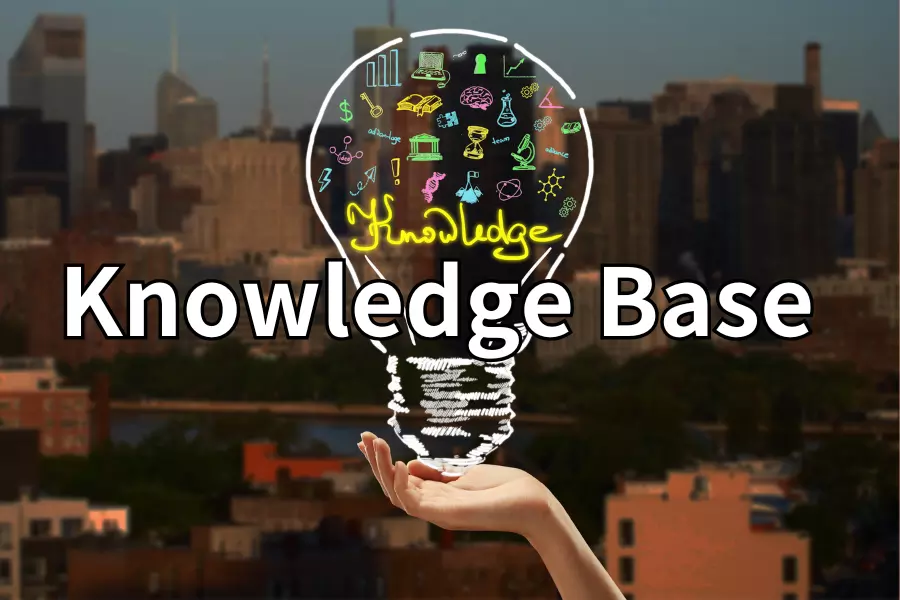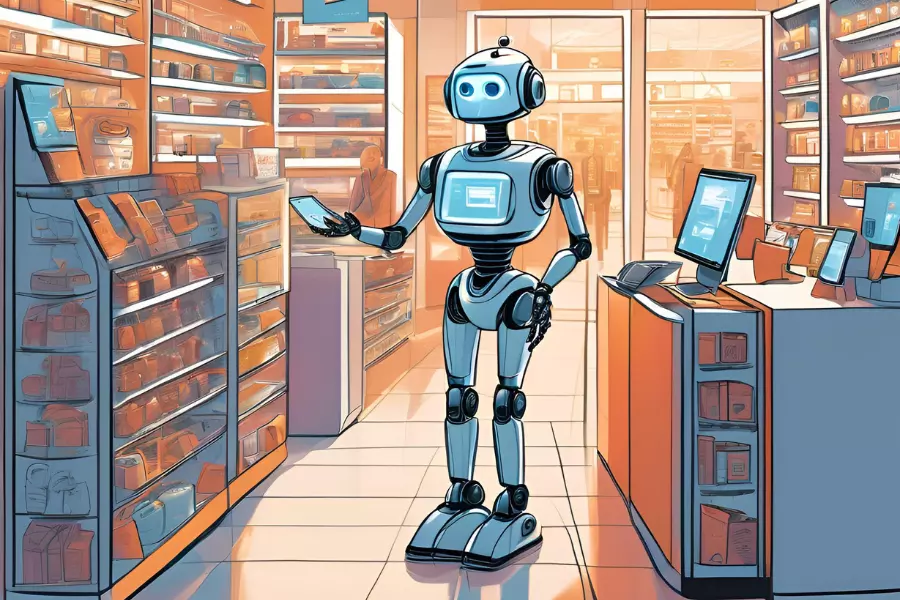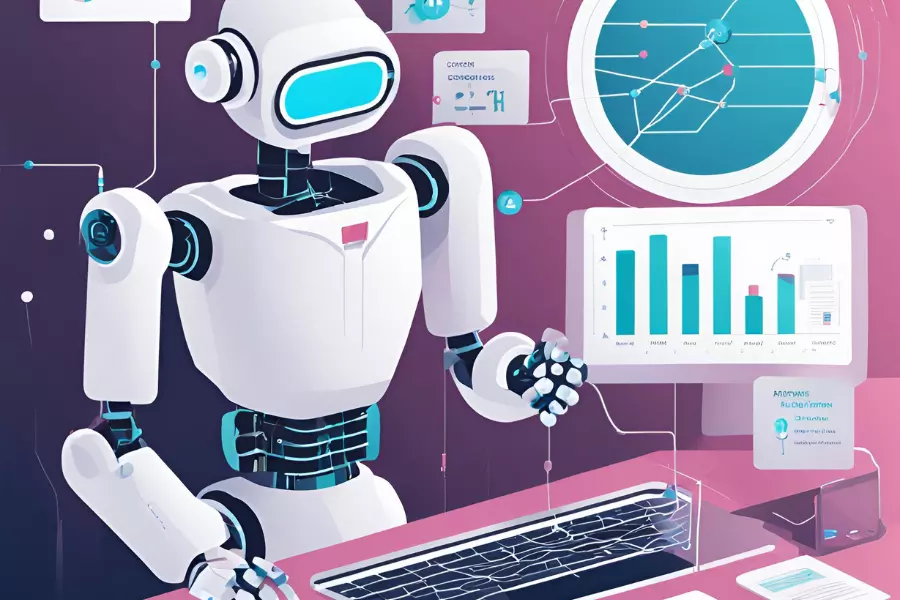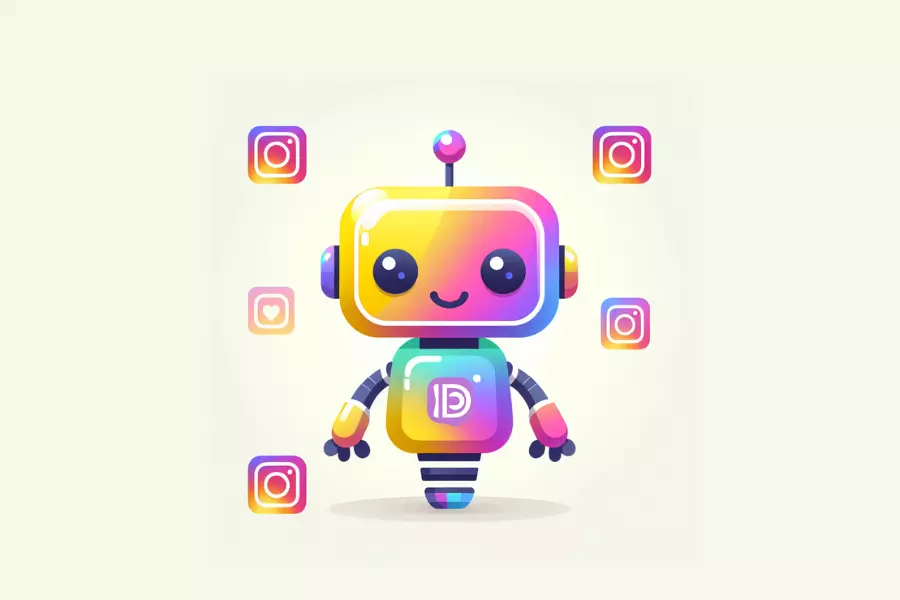AI Agent: The Future of Artificial Intelligence, from Conversation to Autonomous Action
Description
AI Agents are leading the field of artificial intelligence, evolving from simple conversation systems to intelligent assistants capable of autonomously performing complex tasks. This article explores the definition, characteristics, application scenarios, challenges, and future development trends of AI Agents.
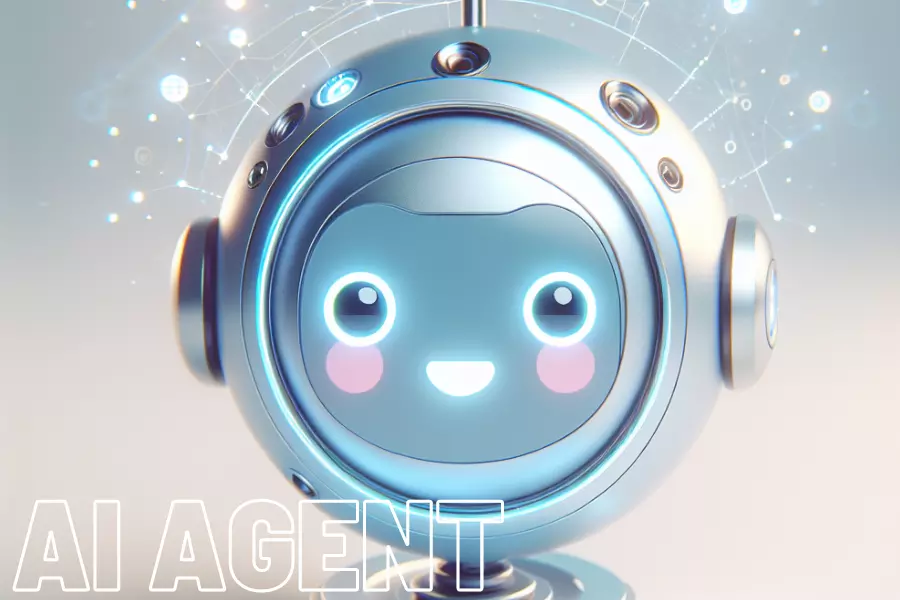
What is an AI Agent?
An AI Agent (Artificial Intelligence Agent/Entity) is an AI system that can perceive its environment, make autonomous decisions, and take actions without continuous human intervention. This is significantly different from traditional conversational AI, which can only respond passively to commands. AI Agents can:
- Understand complex instructions: They can interpret not only single commands but also multi-step instructions with implied intentions.
- Autonomously plan: They can proactively plan steps and strategies to achieve goals based on objectives and environmental information.
- Break tasks into steps: They can decompose complex tasks into smaller, manageable sub-tasks and execute them step-by-step.
- Take appropriate actions: They can perform actions in digital or physical environments through various interfaces or tools.
- Learn and improve from results: They can learn from feedback and experience to optimize their performance and decision-making capabilities.
The operation of an AI Agent typically includes the following components:
- Perceptors: Receive environmental information.
- Brain/Controller: Process information and make decisions.
- Actuators: Perform actions in the environment.
In short, an AI Agent is like a capable virtual assistant that can handle various tasks on behalf of humans, ranging from simple scheduling to complex problem-solving, demonstrating greater autonomy and intelligence.
Core Capabilities of AI Agents
To be a qualified AI Agent, it needs to possess the following key capabilities, which enable it to operate autonomously in complex environments and achieve goals:
1. Perception
AI Agents need to perceive and understand their environment, which is the foundation for all subsequent actions. This includes:
- Text Understanding (Natural Language Understanding, NLU): Parse natural language commands and text information, understanding their meaning, intent, and context. This goes beyond simple text matching and focuses on understanding semantics and context.
- Image Recognition (Computer Vision): Analyze visual information, including images and videos, to identify objects, scenes, and faces.
- Speech Recognition: Process voice input, converting speech to text and understanding its meaning.
- Sensor Data Processing: Handle data from various sensors, such as temperature, humidity, pressure, and location, to perceive changes in the physical environment.
- Context Awareness: Combine multiple sensory inputs to understand the current situation and state, making more reasonable judgments.
For example, a smart home AI Agent needs to understand voice commands (like “turn on the lights”) and perceive changes in the indoor environment (like light levels and whether someone is in the room) to respond correctly.
2. Planning
Based on perceived information and given goals, AI Agents need to formulate action plans, breaking down goals into executable steps. This involves:
- Task Decomposition: Break down complex goals into smaller, manageable sub-tasks, forming a task execution process.
- Prioritization: Determine the order of task execution based on their importance and urgency.
- Resource Allocation: Allocate time, computational resources, and energy efficiently to complete tasks.
- Goal-Oriented: The planning process always revolves around the ultimate goal, ensuring all actions move towards it.
- Contingency Planning: Consider potential environmental changes and plan for different scenarios in advance.
A travel planning AI Agent, for instance, needs to plan the best itinerary based on the user’s budget, preferences, and time, including booking flights, hotels, recommending attractions, and arranging transportation.
3. Decision-Making
During the execution of plans, AI Agents need to make decisions based on real-time situations, choosing the best course of action. This includes:
- Option Evaluation: Analyze the possible outcomes of different actions and evaluate their pros and cons.
- Risk Assessment: Consider the potential risks and uncertainties of various decisions.
- Real-time Adjustment: Flexibly modify the original plan based on new information and environmental changes.
- Reasoning: Use logic and knowledge to infer hidden information and connections.
- Strategy Selection: Choose different strategies based on different situations to achieve the best results.
For example, an investment AI Agent needs to make buy, sell, or hold decisions based on market changes, news events, and company financial reports.
4. Acting
After formulating plans, AI Agents need to be able to execute these plans and interact with the environment. This may include:
- API Calls: Interact with other systems or services, such as sending emails, booking flights, or querying databases.
- Tool Use: Operate specific software or hardware, such as controlling robotic arms or operating web browsers.
- Output Generation: Generate text, images, speech, or other forms of results to communicate with users or other systems.
- Environment Interaction: Take actions in physical or virtual environments, such as moving, grasping, or placing objects.
A customer service AI Agent, for instance, needs to query databases, generate responses, send notifications, and even process refunds directly.
5. Learning
Excellent AI Agents should be able to learn and improve from experience, continuously enhancing their performance. This involves:
- Feedback Analysis: Evaluate the outcomes of actions and analyze the reasons for success and failure.
- Pattern Recognition: Discover patterns and regularities from multiple interactions and experiences.
- Knowledge Update: Continuously expand and optimize their knowledge base to handle more complex tasks and situations.
- Reinforcement Learning: Learn how to maximize rewards or minimize penalties through interaction with the environment.
- Supervised Learning: Learn from labeled data to improve the accuracy of predictions and classifications.
For example, a writing AI Agent should be able to improve its writing style, content, and expression based on reader feedback (such as click-through rates, dwell time, and comments).
Application Scenarios of AI Agents
The application range of AI Agents is extremely broad, covering almost all areas that require intelligent decision-making and automation. They are gradually penetrating every aspect of our lives, from personal life to business operations to scientific research, showing immense potential. Here are some typical application scenarios, expanded upon:
1. Smart Customer Service
AI Agents can serve as 24/7 online customer service representatives, providing instant and efficient customer service, significantly enhancing customer satisfaction. They can:
- Understand customer’s natural language queries: Use natural language processing (NLP) technology to accurately understand customer intentions and needs, even if the expressions are not clear.
- Quickly retrieve relevant information from knowledge bases: Quickly find product information, FAQs, operation manuals, etc., to provide instant responses.
- Generate personalized responses: Provide customized service experiences based on customer profiles and history.
- Transfer customers to human agents when necessary: Seamlessly transfer to human agents for complex issues or those beyond their capabilities, ensuring problems are resolved properly.
- Integrate multiple channels: Integrate customer service across multiple channels such as phone, email, and social media, providing a consistent service experience.
- Emotion Analysis: Analyze customer emotions, such as detecting dissatisfaction or frustration, and take appropriate actions.
2. Personal Assistants
Similar to Jarvis in the movie “Iron Man,” AI Agents can become our reliable assistants, significantly enhancing personal efficiency and quality of life. They can:
- Manage schedules and reminders: Automatically schedule meetings, set reminders, and manage to-do lists.
- Reply to emails and messages: Automatically reply or draft responses based on email content and sender.
- Search and organize information: Quickly find web information, documents, images, etc., and organize and summarize them.
- Control smart home devices: Control lights, air conditioning, appliances, etc., through voice or text commands.
- Plan trips and make reservations: Automatically plan trips, book flights, hotels, and restaurants based on personal preferences and budget.
- Health Management: Track health data, provide health advice, and schedule medical services.
Apple’s Siri and Google’s Assistant are moving in this direction, and with more powerful language models and autonomous planning capabilities, they will become even smarter and more autonomous in the future.
3. Financial Trading
In the financial sector, AI Agents can serve as automated trading systems, executing complex investment strategies and reducing human errors and emotional interference. They can:
- Analyze market data and news: Monitor market data, news events, and social media sentiment in real-time to capture market changes.
- Predict price trends: Use machine learning models to predict price trends of stocks, futures, forex, and other financial products.
- Execute buy and sell orders: Automatically execute buy and sell orders based on preset strategies and market conditions.
- Manage portfolio risk: Effectively control portfolio risk through risk models and algorithms.
- Algorithmic Trading: Execute predefined trading rules for high-frequency or arbitrage trading.
- Fraud Detection: Monitor transaction behavior to identify suspicious patterns and prevent financial fraud.
Many hedge funds and financial institutions are already using AI Agents for high-frequency trading, quantitative investing, and risk management.
4. Smart Manufacturing
In the context of Industry 4.0, AI Agents are playing an increasingly important role in manufacturing, driving improvements in production efficiency and quality. They can:
- Optimize production schedules: Optimize production scheduling based on orders, inventory, and equipment status to improve production efficiency.
- Predict equipment maintenance needs: Monitor equipment operation data to predict failures and perform maintenance in advance, reducing downtime.
- Control robots and automation equipment: Control robots and automation equipment on production lines to automate production processes.
- Monitor product quality: Use image recognition and other sensor technologies to monitor product quality and detect defects in time.
- Supply Chain Management: Optimize various aspects of the supply chain, including procurement, logistics, and warehousing, to enhance supply chain efficiency and flexibility.
5. Autonomous Driving
Autonomous driving cars are essentially complex AI Agent systems that need to process complex environmental information and make real-time decisions. They need to:
- Perceive the surrounding environment: Use radar, lidar, cameras, and other sensors to perceive surrounding vehicles, pedestrians, road signs, etc.
- Plan driving routes: Plan the best driving routes based on map information and traffic conditions.
- Make real-time driving decisions: Make acceleration, deceleration, and steering decisions based on real-time road conditions.
- Control vehicle actions: Control the vehicle’s engine, brakes, steering wheel, etc., to execute driving commands.
- Path Planning and Navigation: Plan safe and efficient paths in complex road environments and perform real-time navigation.
Tesla’s Autopilot system and other autonomous driving technologies are evolving AI Agent applications.
Other Application Scenarios
In addition to the above typical application scenarios, AI Agents can be applied in many other fields, such as:
- Healthcare: Assist doctors in diagnosing diseases, formulating treatment plans, and providing health advice.
- Education: Provide personalized learning experiences and tutor students.
- Entertainment: Create interactive games and provide personalized content recommendations.
- Scientific Research: Assist scientists in data analysis and simulation experiments.
- Content Creation: Automatically generate articles, code, images, music, etc.
- Cybersecurity: Detect cyber attacks and prevent data breaches.
Challenges Faced by AI Agents
Despite the immense potential of AI Agents, they face many complex challenges in practical applications, involving not only technical aspects but also ethical, legal, and social dimensions:
1. Reliability and Safety
The decisions of AI Agents can directly impact human lives and safety, especially in critical areas such as autonomous driving and healthcare, requiring extremely high reliability and safety:
- How to ensure AI Agents do not make harmful decisions? This requires strict testing, verification, and monitoring mechanisms, as well as customized safety protocols for different application scenarios.
- How to prevent AI Agents from being maliciously exploited or attacked? This requires robust cybersecurity measures, such as data encryption, identity verification, intrusion detection, and defense strategies against adversarial attacks.
- How to intervene promptly when AI Agents make mistakes? This requires establishing comprehensive fault handling and emergency response mechanisms, as well as human oversight and intervention pathways.
- Unintended Behavior: AI Agents may exhibit unexpected behavior in complex environments, requiring rigorous simulation and testing to identify and correct.
- Robustness: AI Agents need to maintain stable performance in the face of interference, noise, or abnormal inputs.
This requires establishing comprehensive safety mechanisms and regulatory frameworks and continuously improving technology and assessing risks.
2. Transparency and Explainability
Many AI Agents, especially those based on deep learning, are often “black boxes,” making it difficult to understand their internal workings:
- How to understand the decision-making process of AI Agents? This requires developing explainable AI (XAI) technologies, such as attention mechanisms, rule extraction, and visualization, to reveal the decision-making basis of AI Agents.
- How to explain the behavior of AI Agents? This requires providing clear and concise explanations to help users understand the decision logic of AI Agents and build trust.
- How to ensure AI Agents’ decisions comply with ethical and legal standards? This requires integrating ethical and legal norms into the design and development process of AI Agents and establishing corresponding regulatory mechanisms.
- Bias: Biases in training data may lead to unfair or discriminatory decisions by AI Agents, requiring careful data review and appropriate measures.
Improving the explainability of AI systems is a crucial direction in current AI research and key to building user trust and promoting widespread AI adoption.
3. Privacy Protection
AI Agents need to process large amounts of personal data, such as user behavior, preferences, and location, raising serious privacy concerns:
- How to protect user data from misuse? This requires strict data security measures, such as data encryption, access control, anonymization, and clear data usage policies and regulations.
- How to balance personalized service and privacy protection? This requires using differential privacy, federated learning, and other technologies to provide personalized services without revealing personal data.
- How to handle cross-border data flow legal issues? This requires compliance with data protection laws of various countries, such as the EU’s GDPR and the US’s CCPA.
- Data Ownership: Clearly define data ownership and usage rights to ensure users have control over their data.
Regulations like the EU’s GDPR are providing guidance on this, while the technical community is developing various privacy protection technologies.
4. Human-Computer Collaboration
AI Agents are not meant to completely replace humans but should collaborate with them to complete tasks:
- How to design human-computer interaction interfaces? This requires considering human cognitive abilities and usage habits, designing intuitive and user-friendly interfaces that allow people to easily interact with AI Agents.
- How to allocate tasks to AI and humans? This requires assigning tasks based on their nature and human expertise, leveraging the advantages of human-AI collaboration.
- How to address human distrust of AI? This requires improving the transparency and explainability of AI, helping people understand the decision-making process and build trust.
- Accountability: When AI Agents make mistakes or cause harm, determining responsibility is an important legal and ethical issue.
- Fairness and Ethics: Ensure AI Agents’ decisions comply with ethical standards and avoid causing unfairness or discrimination.
This requires interdisciplinary research, including human-computer interaction, cognitive science, sociology, and ethics, to explore the best models for human-AI collaboration.
5. Other Challenges
In addition to the above main challenges, AI Agents face some other issues:
- Resource Requirements: Training and running complex AI Agents require significant computational resources and energy.
- Environmental Adaptability: AI Agents need to adapt to different environments and situations and quickly learn new tasks.
- Continuous Learning and Updating: AI Agents need to continuously learn and update their knowledge bases to meet changing environments and needs.
- Standardization and Interoperability: The lack of unified standards and norms may lead to interoperability issues between different AI Agents.
In summary, the development of AI Agents is promising but faces many complex challenges. Addressing these challenges requires the joint efforts of the technical community, legal professionals, ethicists, and various social sectors to ensure that the development of AI Agents truly benefits humanity.
Future Trends of AI Agents
The development of AI Agents is in a rapidly evolving stage, and the future will move towards more intelligent, autonomous, and humanized directions. Here are some important trends:
-
Multimodal Interaction: Future AI Agents will not be limited to single text or voice inputs but will be able to process and integrate information from multiple modalities, such as:
- Text, voice, images, videos: Understand text commands, voice conversations, image content, and video scenes, and choose appropriate output methods based on different situations, such as text responses, speech synthesis, and image generation.
- Gestures, expressions, body language: Perceive human gestures, expressions, and body language for more natural interactions.
- Sensor Data: Combine data from various sensors, such as temperature, humidity, location, and biometric features, to more comprehensively perceive the environment and user status.
This multimodal interaction will make AI Agents closer to human communication methods, providing a more natural and intuitive user experience.
-
Continuous Learning (Lifelong Learning): Future AI Agents will have stronger learning capabilities, able to:
- Learn from every interaction: Continuously improve their performance and decision-making capabilities through user feedback and interaction data.
- Online Learning: Continuously learn during actual applications to adapt to changing environments and needs.
- Transfer Learning: Apply knowledge learned in one domain to other related domains, improving learning efficiency.
- Self-Supervised Learning: Learn by analyzing large amounts of unlabeled data, reducing reliance on manually labeled data.
This continuous learning capability will enable AI Agents to evolve and grow, becoming increasingly intelligent and reliable.
-
Cross-Domain Collaboration (Agent Teams): Future AI Agents will no longer be isolated individuals but will be able to:
- Collaborate with other AI Agents: AI Agents with different domains or expertise can communicate and collaborate to solve complex problems. For example, a travel planning AI Agent can collaborate with a weather forecasting AI Agent to adjust travel plans based on weather conditions.
- Form Agent Teams: Create more complex AI Agent systems, with each Agent responsible for different sub-tasks, working together to complete a large project.
This cross-domain collaboration capability will enable AI Agents to handle more complex and broader tasks and solve problems that a single Agent cannot.
-
Emotional Intelligence (Affective Computing): Future AI Agents will not just be cold machines but will be able to:
- Understand and recognize human emotions: Perceive human emotional states by analyzing voice, expressions, and text.
- Express emotions: Express their own emotions through speech synthesis, expression simulation, and other methods, providing a more humanized interaction experience.
- Empathy: Understand human emotional needs and respond appropriately, providing more caring services.
This emotional intelligence will make AI Agents more relatable, easier to build trust and emotional connections with humans.
-
Autonomous Innovation (Generative AI): Future AI Agents will not just be tools for executing commands but may possess:
- Creativity: Generate original ideas, designs, and content, such as creating music, paintings, and writing.
- Problem-Solving Abilities: Independently analyze problems, propose solutions, and even proactively identify and solve problems without explicit instructions.
- Model-Based Reasoning and Planning: Build internal world models for more complex reasoning and planning, predicting the consequences of actions.
This autonomous innovation capability will make AI Agents true partners for humans, jointly driving technological and social development.
-
Personalization and Adaptability: Future AI Agents will be able to customize according to each user’s unique needs and preferences and adapt to changes over time.
-
Edge Computing and Distributed Architecture: To improve efficiency and reduce latency, future AI Agents will run more on edge devices and adopt distributed architectures, enhancing system flexibility and reliability.
-
Integration with Augmented Reality (AR) and Virtual Reality (VR): AI Agents will integrate more closely with AR and VR technologies, providing more immersive and interactive user experiences.
These trends are not independent but interrelated and mutually reinforcing. With the continuous advancement of technology, we have reason to believe that future AI Agents will become increasingly powerful and intelligent, playing a greater role in various fields.
Conclusion
AI Agents represent an important milestone in the development of artificial intelligence, marking a significant leap from passive response to proactive action. They are not just tools for executing preset commands but intelligent entities capable of perceiving the environment, making autonomous decisions, taking actions, and even learning and evolving from experience.
Despite the challenges of reliability, safety, transparency, privacy protection, and human-AI collaboration that AI Agents face, their potential is immeasurable. With breakthroughs in deep learning, reinforcement learning, natural language processing, and continuous improvements in computational capabilities, we have every reason to expect AI Agents to play a key role in a broader range of fields in the future, such as:
- Empowering Individuals: Becoming smarter personal assistants, enhancing personal efficiency and quality of life.
- Revolutionizing Industries: Driving automation and intelligent transformation across various industries, improving production efficiency and innovation capabilities.
- Advancing Scientific Research: Assisting scientists in solving complex scientific problems and accelerating the pace of scientific discovery.
- Addressing Global Challenges: Playing a positive role in addressing global challenges such as climate change, disease prevention, and resource management.
AI Agents have the potential to become powerful partners for humans, jointly addressing future challenges and creating a better future.
However, we must approach the development of AI Agents with caution, considering the ethical, legal, and social impacts they bring. The following aspects are particularly important:
- Establish Comprehensive Regulatory Frameworks: Develop clear laws and ethical norms to regulate the development, deployment, and use of AI Agents, ensuring they comply with social ethics and legal requirements.
- Strengthen Cross-Disciplinary Collaboration: Promote collaboration among experts from the technical community, legal professionals, ethicists, and sociologists to explore various issues arising from the development of AI Agents.
- Enhance Public Awareness and Participation: Strengthen AI education and public awareness, increasing public understanding and participation in the oversight of AI Agents.
- Emphasize a Human-Centric Development Philosophy: Ensure that the development of AI Agents always centers on human well-being, serving the progress and development of human society rather than replacing or controlling humans.
Only through careful consideration, rigorous practice, and broad collaboration can we ensure that the development of AI Agents truly benefits humanity and leads us towards a more intelligent and better future.





